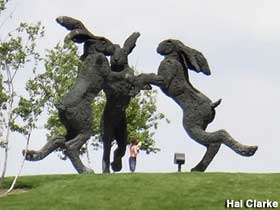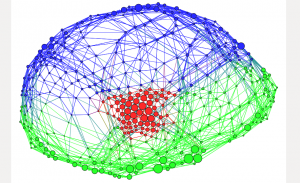Towards integrative compartmentalized chemical systems: a lipid-peptide rendez-vous.
Sara Murillo Sanchez1,2, Damien Beaufils,3 Robert Pascal,3 Kepa Ruiz-Mirazo1,2,
1Biophysics Unit (CSIC, UPV/EHU), Leioa, Spain; 2Department of Logic and Philosophy of Science, UPV, Donostia−San Sebastián, Spain; 3IBMM, CNRS – Université de Montpellier, Place E. Bataillon, 34095 Montpellier Cedex 5, France
Maturana and Varela’s work on the theory of autopoiesis in the seventies and eighties led to a conception of life as a form of organization, by which each living entity recursively produces itself, including the boundary with its local environment (i.e., the cellular compartment). In more recent times, we have applied a similar idea, ‘basic autonomy’ [1], to design a research agenda in the field of origins of life, proposing it as an intermediate bridge between complex self-organizing phenomena and ‘genetically-instructed metabolisms’ – i.e., minimal but already full-fledged living organisms, capable of open-ended evolution [2].
This systems view for the origin of life is grounded on the idea that biological organization should result from the functional integration of diverse autocatalytic subsystems maintained in far-from-equilibrium conditions. The authors of this work come from two different fields of research, prebiotic peptide synthesis [3, 4] and fatty acid compartment self-assembly [5], but share the aim of investigating the relevance of coupled processes that could connect both fields.
The membrane-assisted formation of oligo-peptides [6,7] or more recent endogenous synthesis of a hydrophobic peptide that gets inserted in the lipid bilayer of a protocell [8] have opened new research pathways into the possibility that peptides could be helpful for the growth and stability of lipid vesicles.
We present here the first results of a collaborative work in which the presence of fatty acid vesicles has been demonstrated to favor the peptide bond formation, potentially leading to a prebiotic process of selection and amplification of peptide residues. In turn, the insertion of the type of peptides synthesized here into fatty acid membranes could also contribute to their stability, representing a positive feedback for vesicle self-assembly and potential growth and reproduction.
References:
[1] K. Ruiz-Mirazo, A. Moreno, 2004, Artificial Life, 10(3), 235–2597
[2] K. Ruiz-Mirazo, J. Umerez & A. Moreno, 2008, Biology and Philosophy, 23(1), 67–85
[3] D. Beaufils, G. Danger, L. Boiteau, R. Pascal, 2014. Chem. Commun, 50 :3100–3102
[4] G. Danger, R. Plasson, R. Pascal, 2012, Chemical Society Reviews, 41:5416–29.
[5] A. Rendón, D. Gil Carton, J. Sot, M. García-Palacios, R. Montes, M. Valle, J-L. Arrondo, F.M. Goñi, K. Ruiz-Mirazo, 2012, Biophysical Journal, 102: 278-286.
[6] M. Blocher, D. Liu, P. L. Luisi, 2000, Macromolecules, 33:5787-5796
[7] H. H. Zepik, S. Rajamani, M.-C. Maurel, D. Deamer, 2007, Orig. Life Evol. Biosph. 37, 495-505.
[8] K. Adamala, J. W. Szostak, 2013, Nat. Chem. 5, 495–501
Towards integrative compartmentalized chemical systems: a lipid-peptide rendez-vous.
Sara Murillo Sanchez1,2, Damien Beaufils,3 Robert Pascal,3 Kepa Ruiz-Mirazo1,2,
1Biophysics Unit (CSIC, UPV/EHU), Leioa, Spain; 2Department of Logic and Philosophy of Science, UPV, Donostia−San Sebastián, Spain; 3IBMM, CNRS – Université de Montpellier, Place E. Bataillon, 34095 Montpellier Cedex 5, France
Maturana and Varela’s work on the theory of autopoiesis in the seventies and eighties led to a conception of life as a form of organization, by which each living entity recursively produces itself, including the boundary with its local environment (i.e., the cellular compartment). In more recent times, we have applied a similar idea, ‘basic autonomy’ [1], to design a research agenda in the field of origins of life, proposing it as an intermediate bridge between complex self-organizing phenomena and ‘genetically-instructed metabolisms’ – i.e., minimal but already full-fledged living organisms, capable of open-ended evolution [2].
This systems view for the origin of life is grounded on the idea that biological organization should result from the functional integration of diverse autocatalytic subsystems maintained in far-from-equilibrium conditions. The authors of this work come from two different fields of research, prebiotic peptide synthesis [3, 4] and fatty acid compartment self-assembly [5], but share the aim of investigating the relevance of coupled processes that could connect both fields.
The membrane-assisted formation of oligo-peptides [6,7] or more recent endogenous synthesis of a hydrophobic peptide that gets inserted in the lipid bilayer of a protocell [8] have opened new research pathways into the possibility that peptides could be helpful for the growth and stability of lipid vesicles.
We present here the first results of a collaborative work in which the presence of fatty acid vesicles has been demonstrated to favor the peptide bond formation, potentially leading to a prebiotic process of selection and amplification of peptide residues. In turn, the insertion of the type of peptides synthesized here into fatty acid membranes could also contribute to their stability, representing a positive feedback for vesicle self-assembly and potential growth and reproduction.
References:
[1] K. Ruiz-Mirazo, A. Moreno, 2004, Artificial Life, 10(3), 235–2597
[2] K. Ruiz-Mirazo, J. Umerez & A. Moreno, 2008, Biology and Philosophy, 23(1), 67–85
[3] D. Beaufils, G. Danger, L. Boiteau, R. Pascal, 2014. Chem. Commun, 50 :3100–3102
[4] G. Danger, R. Plasson, R. Pascal, 2012, Chemical Society Reviews, 41:5416–29.
[5] A. Rendón, D. Gil Carton, J. Sot, M. García-Palacios, R. Montes, M. Valle, J-L. Arrondo, F.M. Goñi, K. Ruiz-Mirazo, 2012, Biophysical Journal, 102: 278-286.
[6] M. Blocher, D. Liu, P. L. Luisi, 2000, Macromolecules, 33:5787-5796
[7] H. H. Zepik, S. Rajamani, M.-C. Maurel, D. Deamer, 2007, Orig. Life Evol. Biosph. 37, 495-505.
[8] K. Adamala, J. W. Szostak, 2013, Nat. Chem. 5, 495–501
Towards integrative compartmentalized chemical systems: a lipid-peptide rendez-vous.
Sara Murillo Sanchez1,2, Damien Beaufils,3 Robert Pascal,3 Kepa Ruiz-Mirazo1,2,
1Biophysics Unit (CSIC, UPV/EHU), Leioa, Spain; 2Department of Logic and Philosophy of Science, UPV, Donostia−San Sebastián, Spain; 3IBMM, CNRS – Université de Montpellier, Place E. Bataillon, 34095 Montpellier Cedex 5, France
Maturana and Varela’s work on the theory of autopoiesis in the seventies and eighties led to a conception of life as a form of organization, by which each living entity recursively produces itself, including the boundary with its local environment (i.e., the cellular compartment). In more recent times, we have applied a similar idea, ‘basic autonomy’ [1], to design a research agenda in the field of origins of life, proposing it as an intermediate bridge between complex self-organizing phenomena and ‘genetically-instructed metabolisms’ – i.e., minimal but already full-fledged living organisms, capable of open-ended evolution [2].
This systems view for the origin of life is grounded on the idea that biological organization should result from the functional integration of diverse autocatalytic subsystems maintained in far-from-equilibrium conditions. The authors of this work come from two different fields of research, prebiotic peptide synthesis [3, 4] and fatty acid compartment self-assembly [5], but share the aim of investigating the relevance of coupled processes that could connect both fields.
The membrane-assisted formation of oligo-peptides [6,7] or more recent endogenous synthesis of a hydrophobic peptide that gets inserted in the lipid bilayer of a protocell [8] have opened new research pathways into the possibility that peptides could be helpful for the growth and stability of lipid vesicles.
We present here the first results of a collaborative work in which the presence of fatty acid vesicles has been demonstrated to favor the peptide bond formation, potentially leading to a prebiotic process of selection and amplification of peptide residues. In turn, the insertion of the type of peptides synthesized here into fatty acid membranes could also contribute to their stability, representing a positive feedback for vesicle self-assembly and potential growth and reproduction.
References:
[1] K. Ruiz-Mirazo, A. Moreno, 2004, Artificial Life, 10(3), 235–2597
[2] K. Ruiz-Mirazo, J. Umerez & A. Moreno, 2008, Biology and Philosophy, 23(1), 67–85
[3] D. Beaufils, G. Danger, L. Boiteau, R. Pascal, 2014. Chem. Commun, 50 :3100–3102
[4] G. Danger, R. Plasson, R. Pascal, 2012, Chemical Society Reviews, 41:5416–29.
[5] A. Rendón, D. Gil Carton, J. Sot, M. García-Palacios, R. Montes, M. Valle, J-L. Arrondo, F.M. Goñi, K. Ruiz-Mirazo, 2012, Biophysical Journal, 102: 278-286.
[6] M. Blocher, D. Liu, P. L. Luisi, 2000, Macromolecules, 33:5787-5796
[7] H. H. Zepik, S. Rajamani, M.-C. Maurel, D. Deamer, 2007, Orig. Life Evol. Biosph. 37, 495-505.
[8] K. Adamala, J. W. Szostak, 2013, Nat. Chem. 5, 495–501


